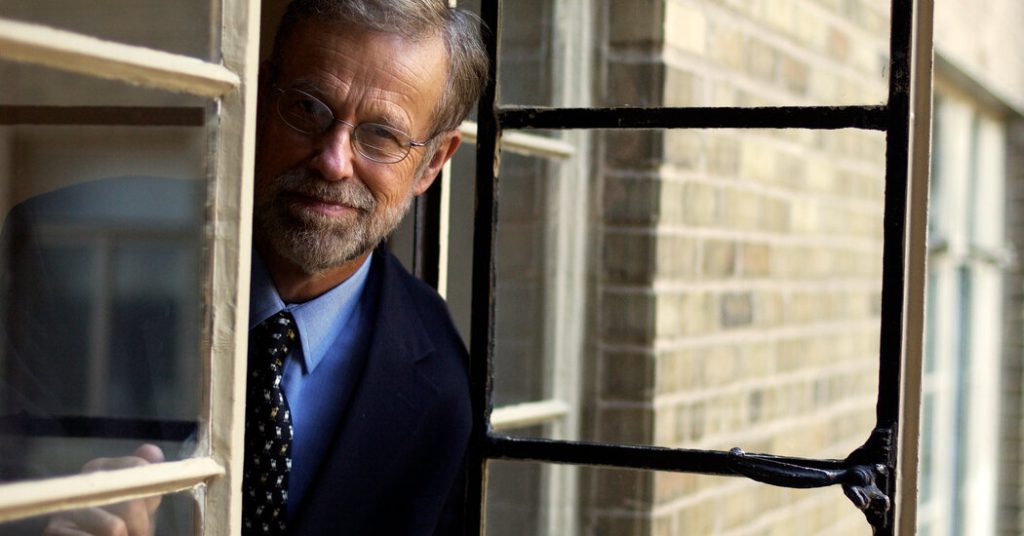Robert B. Oxnam, a prominent China scholar, passed away at the age of 81 at his home in Greenport, N.Y., due to complications of Alzheimer’s disease. Despite his success as president of the Asia Society and an accomplished sailor, he struggled with various issues such as bulimia, memory blackouts, and depression, seeking treatment initially for excessive drinking. Through psychotherapy with Dr. Jeffery Smith, he discovered that he had multiple personalities, with the first one, Tommy, emerging in therapy followed by others like Bobby and Baby. He recounted his experiences in his book “A Fractured Mind: My Life With Multiple Personality Disorder.”
Dr. Oxnam’s therapy sessions with Dr. Smith revealed the vivid internal world his personalities inhabited, including a castle with intricate details like rooms, dungeons, and a library behind iron-locked doors. By speaking to different personalities, Dr. Smith was able to help Dr. Oxnam navigate the distressing memories and traumas that were buried within him. Through therapy, the 11 personalities were eventually merged into a more manageable three. Multiple personality disorder, now known as dissociative identity disorder, typically emerges after severe trauma early in life and affects about 1% of the population.
Dr. Oxnam’s experiences with his multiple personalities mirrored the fragmentation of his identity, which Dr. David Spiegel explained as different components that are filed into distinct identities. This disorder was highlighted in the best-selling book “Sybil,” which depicted a woman with 16 personalities. Despite his struggles, Dr. Oxnam had a successful academic career, earning a Ph.D. in East Asian studies from Yale University and serving as an associate professor of Chinese and Japanese history at Trinity College before joining the Asia Society.
During his tenure at the Asia Society, Dr. Oxnam played a significant role in expanding the organization’s reach and focusing on Asia’s most pressing challenges. Despite his alcoholism and behavioral issues, which led to his resignation in 1992, his contributions were recognized by colleagues like Marshall Bouton. Following his departure, Dr. Oxnam continued to pursue various endeavors, including hosting a series about China for PBS, teaching U.S.-Asia relations at Beijing University, and advising Bessemer Trust.
In addition to his professional achievements, Dr. Oxnam found solace in art, creating sculptures inspired by Chinese philosophy and capturing photographs of glacial rocks. He attributed his creative energy to the concept of ‘qi’ in Chinese tradition, which helped him focus and find hope. Throughout his life, Dr. Oxnam grappled with dissociation and trauma but found healing through therapy and creative pursuits. Despite his struggles, he leaves behind a legacy of academic excellence and artistic expression that will be remembered by those who knew him.















